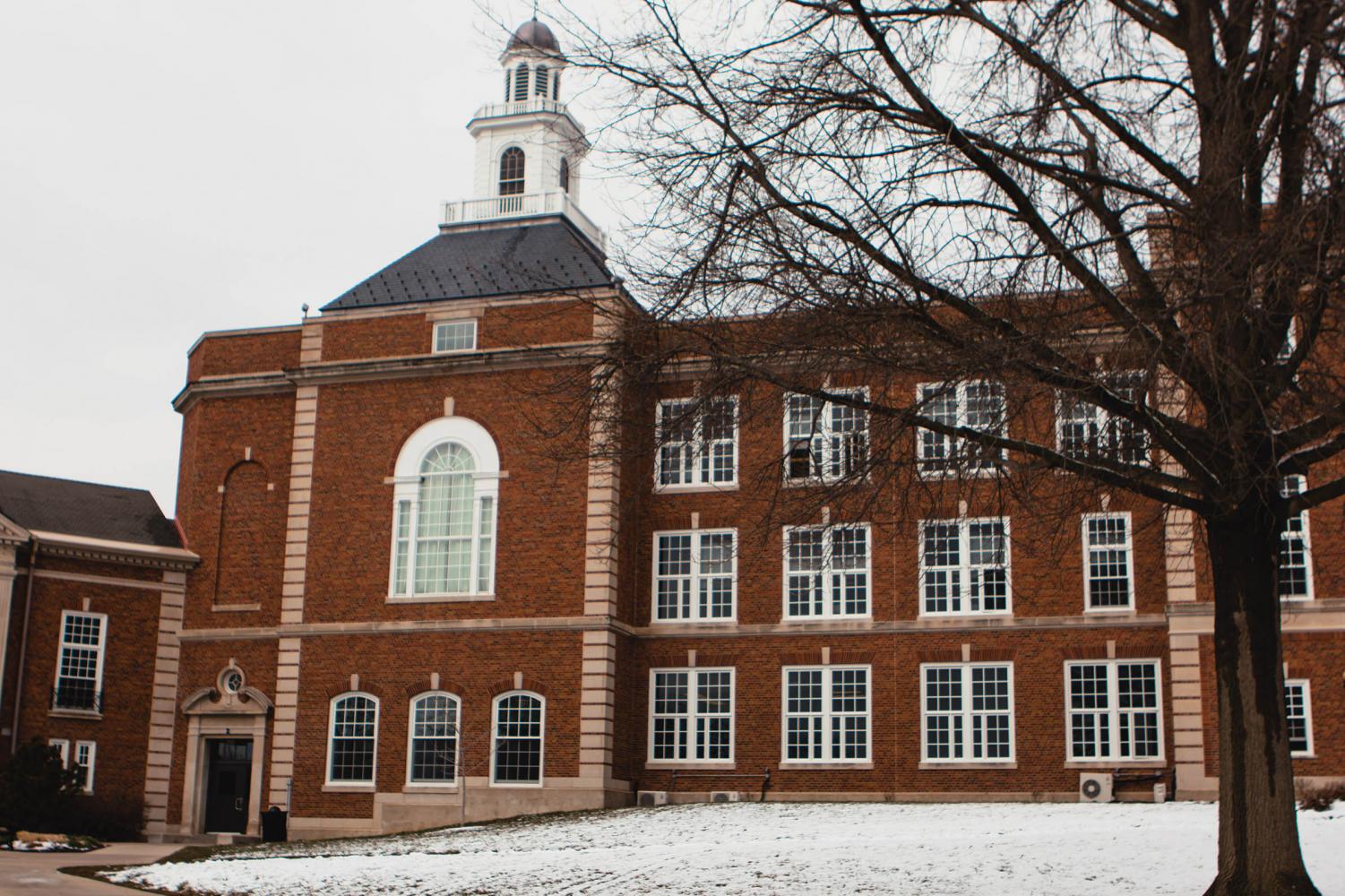Meet 2023 Candidates for School Board
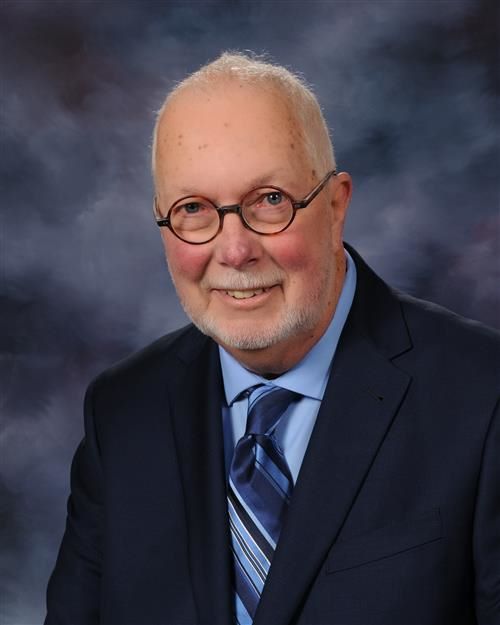
Charlie Eastham has been on the School Board for the last four years. He initially ran for School Board four years ago to support LGBTQ+ and BIPOC students.
Have you run for public office before?
I’ve never been elected to public office [besides School Board]. I’ve been on several boards and commissions that are appointed.
Why are you qualified to be on the School Board?
I think my experience over the last four years is qualification. I have also for several years been a member of a group called Black Voices Project, a nonprofit called the Center for Worker Justice, another group called the Johnson County Interfaith Coalition, and other groups as well in the community, which I believe have allowed me to experience relationships with people throughout the community who have interest in the school district.
Why are you running for School Board?
The principal reason I wanted to be on the Board four years ago was to address the long-standing disparities in education, educational achievement, and disparate disciplinary matters between different groups of students. That is still a substantial interest. I have been on the Board and [I am] running for reelection. I think we’ve made some definite steps to improve the situation in the district for all students over the last few years. This year, the state of Iowa has launched an assault on BIPOC and LGBTQ students especially. I wanted to run for reelection because I think that this board, this administration, students in the school now, and parents are not in favor of what the state is doing. I want us to oppose it, and to continue our support to all students.
What would you say is the biggest issue with public education today?
Our most immediate issues have to do with efforts to reduce our support of LGBTQ students and students of color. Those are issues that are being imposed upon us by the state, not developed locally.
How long have you lived in the district?
Since about 1971.
What are your positions on the bills regarding education being passed in the Iowa Legislature?
I do not support the system of public and private schools that are supported by the state financially and not regulated. So I certainly did not support the current voucher system the state has begun. Also, I do not support some measures that I’ve talked about previously, that the state has implemented, including this ridiculous notion of trying to remove certain books from student access and school libraries and to some extent, in their classrooms. Those are important issues that are in front of us and we are addressing them as best we can.
How are you prepared to address student achievement gaps?
We have a good approach to reducing achievement gaps that we’ve published and put together and are using in our five-year strategic plan. That plan has specific goals in equity, proficiency, and growth, which have numerical components to them. We’ll have at least 80% of students who score proficient or advanced on a state assessment test in math and reading. It would put us well on the way towards eliminating disparity proficiency ratios between different groups of students. It’s so important for institutions such as school districts to have a set of guidelines and statements of aspiration and mission which are available to everyone [and] express the institution’s intentions.
How important are fine arts programs to students’ education?
These [programs] are terribly vital to the student’s education, and students show us that by their participation in very large numbers in our fine arts programs in this district starting in elementary school. I definitely support them, and we don’t want to reduce them at all.
What about foreign languages? Are they important to students’ education?
Yes. [If students] want to take a foreign language, I think they’re making a wise choice that will bear fruit over their entire lives because they engage with other communities as they pursue professional careers. So yeah, I think it’s it’s very important that students have that option to study a language.
Can you talk about how the district is reviewing the math curriculum? What’s your position on that?
We would definitely prefer a program of mass studies that students are comfortable with, no matter what their grade level is. We had a presentation from groups of teachers that were involved in that review just a few weeks ago, indicating that they’re looking at a significant revision of how we’re teaching math. What’s being done is we’re looking at the way in which students learn through the math curriculum. We will not limit the ability of students or the opportunities students have to pursue math to the level that they’re at. But we want to reach all students and enable all students to learn math in a way that makes sense to them and which results in excellent proficiency and competency upon graduation.
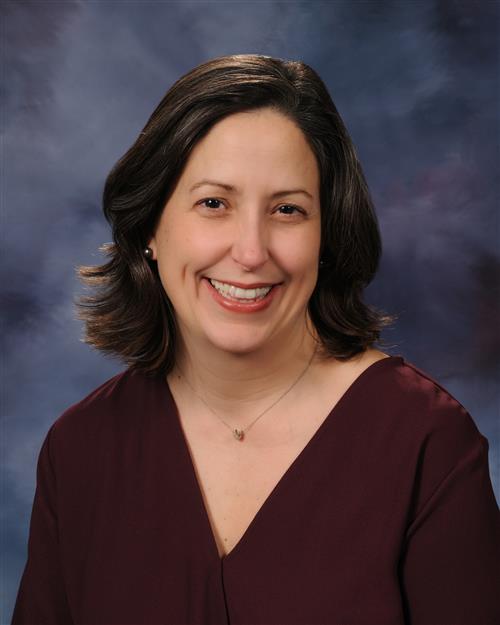
Lisa Williams is an Assistant United States attorney for the Northern District of Iowa. Through her work as a federal prosecutor, she believes that the core of helping people achieve success lies in public education.
Have you run for public office before?
Four years ago was the first time I ran for any type of political office. Part of the reason is that I’m a federal employee for my paying job, and there’s the Hatch Act which means federal employees generally can’t run for partisan political office. You can only run for non-partisan seats. So School Board is one of a few very narrow exceptions that I could actually run for.
Why are you running for School Board?
I am a federal prosecutor, and I do violent crime, which is murder, sexual assaults, and bank robberies. I’ve done that for over a decade and through that work, I started realizing that people who end up in federal criminal court looking at really substantial prison sentences often have had serious gaps with education and they tend to drop out of school somewhere between 10th and 11th grade. They don’t get a high school diploma, they don’t graduate. So it became really important to me to get involved in making sure that our schools are working for all of our students, and setting up systems and processes that are going to encourage everyone to get through school and not have that education gap.
That’s why I initially ran, and I’m running again for a few reasons. The work is really rewarding. I love public service, and it’s really satisfying to be able to give back to the community. And I want to continue building on what the board has done the last four years and really put in place systems and processes that make our schools equitable for every single student that comes in our doors.
What would you say is the biggest issue with public education today?
I think the biggest statewide issue with public schools is the constant attack on public schools that we’re seeing from Des Moines, the legislature, and the governor. I think that teachers are professionals and they go to college and grad school to learn how to teach. And we’re really seeing the state question teachers’ expertise. We’re seeing them question their decisions as it relates to curriculum and what to teach and how to teach. I think that there are people trying to erode the confidence in our public schools and that is really disheartening and sad to see. I think educating people about the amazing things that actually happen in our school, as opposed to the fear-mongering and false claims about what’s happening in schools, is one of the most important things that school boards need to be focused on.
How long have you lived in the district?
[I was born in Des Moines, but] I’ve had some gaps. We moved back [to Iowa City] for good in 2012.
What are your positions on the bills regarding education being passed in the Iowa Legislature?
It’s really been sad to see our legislature target and attack our LGBTQIA+ students. I think that those laws are discriminatory, that they serve no educational purpose and no legitimate purpose. The bathroom bill is particularly horrible. We had to redo all of the gender-neutral bathrooms, and so it’s hard to create safe bathroom spaces because of the way that this bill has been worded. It just goes so much farther than it has to.
[With] the book banning bill, you know, our district, as well as every single district, has a process to review books and determine if they’re appropriate to be in the library. And then there’s a process for parents to challenge the books and have that decision reviewed, and maybe changed. [It] was absolutely unnecessary for the legislature to step in. They clearly wanted to ban maybe eight to ten books that had to do with LGBTQIA characters and issues and stories. And that would have been bad enough, had they done that, but the vague and broad way that they have crafted this law has led to banning a ridiculous amount of books that belong in our library (The Color Purple, Maya Angelou, Ulysses). It is just ridiculous that we cannot provide access to these books to our students because the legislature is so afraid of us having LGBTQIA books on our shelves. It’s just really disappointing and frustrating.
How are you prepared to address student achievement gaps?
We need to take a look at where we have the student achievement gaps, and then we need to look at the policies and procedures that are creating those gaps, dismantle them, and restructure them so that we have equitable outcomes. One of the things that I think is the single most important thing we can do to decrease the opportunity gap is to invest in a universally accessible full-day preschool experience for every single four-year-old student that lives in our district. Preschool is a game changer. Having students be able to access a full-day preschool experience is the single best thing that we can do in terms of student achievement, in terms of helping with issues such as food insecurity, and social emotional well-being. It’s got so many benefits [and] it really is an amazing opportunity for us to take advantage of.
How does a full-day preschool affect kids?
The research has shown that when we can get four-year-old students into a preschool environment, we start getting a chance to educate them, get them ready for kindergarten, and get them used to being around other kids and socialize them and do all of that stuff for school. But it also helps with all of these other tertiary issues. Having families have free or affordable full-day care for their child means that you’re freeing up that family’s resources so that the mom or dad can go out and work a part-time job, which means that they’re having more economic security at home.
Having a four-year-old at school and having them have access to breakfast and lunch helps reduce their food insecurity. Again, if they’re coming from a family with limited means, you’re helping secure two meals a day for them, which is a huge amount of help to the family.
Not having the stress of ‘who’s going to take care of this four-year-old, who’s going to watch him, what’s going to happen?’ helps reduce family stress, which means that parents have more improved mental health, and when your parents have improved mental health, they’re doing a better job of parenting their kids and creating an environment at home where those kids can survive and thrive.
So it’s not just ‘Oh, we’re getting them into school sooner and teaching them things.’ It’s that whole cascading effect. Then there’s a whole bunch of economic benefits that the community sees. You know, right now, the average cost of full-day four-year-old care in Johnson County is $1,200 [a month]. What if families didn’t have to pay $1,200 a month towards four-year-old [full-day] care? If instead there was a place for their four-year-old to go that was free or reduced costs, that frees up all of that money for the family to invest in the economy into other things. Maybe that family can afford groceries and rent and utilities, but maybe also there’s some money to spend out at a restaurant or, you know, at some of our local businesses. It’s a cascading effect that it benefits the student and it benefits the family and it benefits the community.
How important are fine arts programs to students’ education?
The fine arts are an essential component of a well-rounded curriculum. I’ve heard some people during this election say we just need to get back to basics: reading, writing, and arithmetic. And I couldn’t agree less with that statement. Because it’s all of these co-curricular and extracurricular activities that help [students] find their path in life and what they’re interested in and, you know, supporting the fine arts is something that I think that we’ve done fairly well and that we need to continue to do. Even if we’re looking at cutting money in the future, we have to realize the importance of the fine arts.
What about foreign languages? Are they important to students’ education?
I do. I think not only as the United States becomes more multicultural and we have more languages being spoken, foreign languages are also a bridge to discovering different cultures and different ideas and opening your eyes and mind in different ways of thinking. And so I think that the foreign languages are really important.
Can you talk about how the district is reviewing the math curriculum? What’s your position on that?
It’s one of the areas that we have put on deck to take a look at and see what we need to do differently. And I think we are looking at substantial changes to the junior high math model. I think I’m a bit biased because I love math. I think it’s so cool. And I think in its own way, it’s its own foreign language. You know, you can speak and think of the world in terms of numbers and balance. It’s a really amazing skill. And I think it applies to not just math, but to anything you do in your life taking an analytical approach and thinking through problem solving. So, I do think that we need to really take a look at how our curriculum is working at both junior high and high school and make sure that that bridge and that transition is more smooth.
What would that look like?
We’ve started the process of realigning some of our junior high classes so that there’s a better core foundation for Pre-Algebra and the other Junior High classes. One of the things that I’m really proud of is that we, as a district, have set a policy that we are going to do away with our lower-level math classes and instead have the expectation that every student work through Pre-Algebra up to Algebra Two. And so along those lines, one of the things that we’ve done is we’ve realized that not necessarily every student is going to be successful with the current way that Pre-Algebra to Algebra Two works. So we’ve added additional support classes for some students who need them so that they can succeed in all of those math classes.
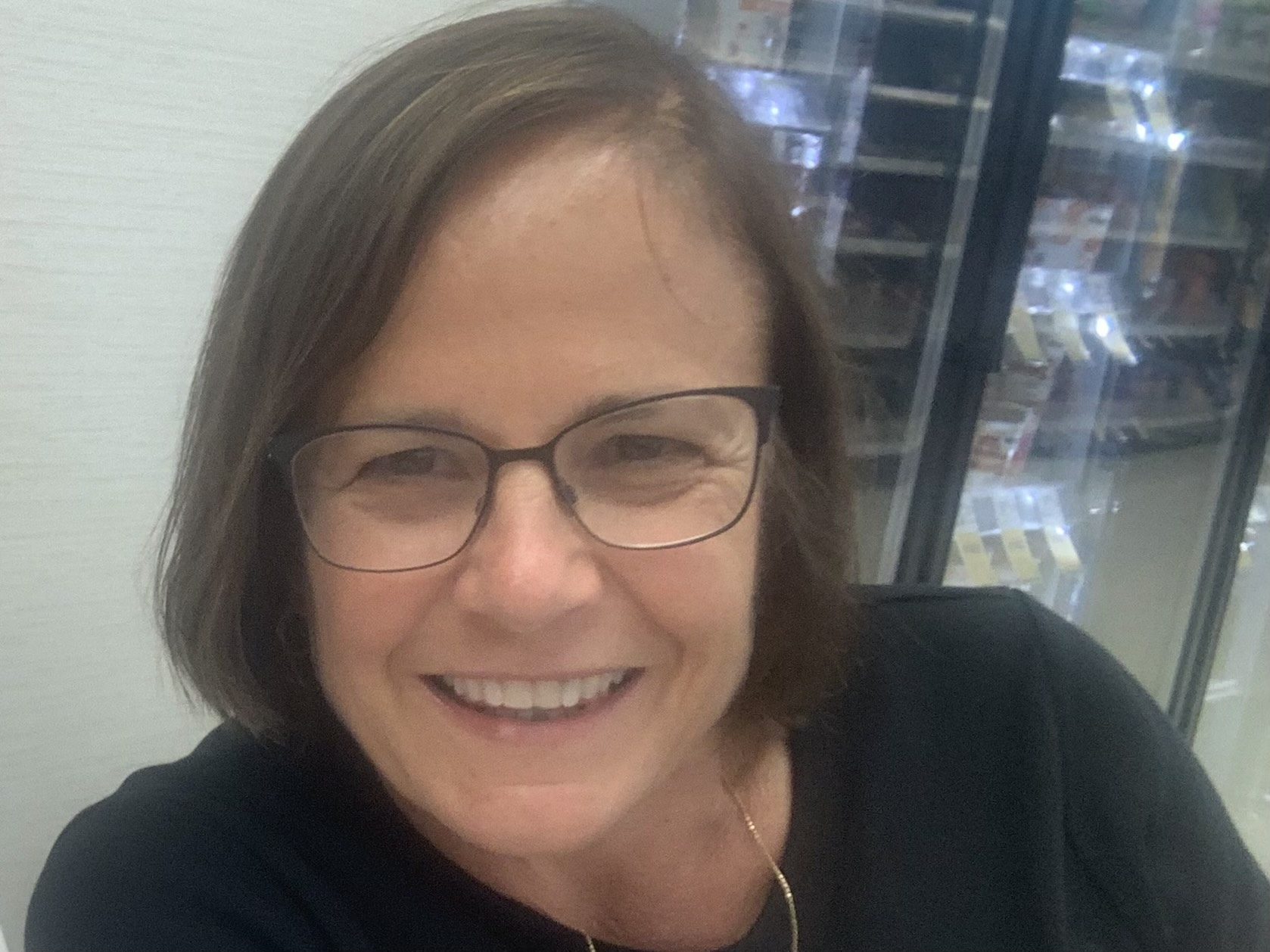
Before being appointed to the school board in September of 2022, Molly Abraham was a special ed teacher (18 years) and Assistant Principal (20 years) at West for thirty-eight years. As an educator, parent, and administrator in the district, Abraham believes that she brings an important perspective to the School Board.
Have you run for public office before?
No. I was appointed to the Board a year ago because somebody had to resign their term early, but this is the first time I’ve ever run for an office.
Why are you qualified to be on the School Board?
I worked for 38 years in the Iowa City School District. Don’t hold it against me, [I worked at] West. I was there for 38 years–eighteen years as a special ed teacher and twenty years as Assistant Principal. I retired in June of 2022. Then I got appointed to the Board in September of 2022. Since I spent my whole career in public education, it’s important to me to continue advocating and supporting public education. I was also a parent. I have three daughters who went through the Iowa City school district. They all really benefited from their experience.
So I have the experience of a teacher, administrator, and parent, and I’ve been on the board for a year.
How long have you lived in the district?
45 years.
What are your positions on the bills regarding education being passed in the Iowa Legislature?
I’m opposed to almost all the legislation that came out on education. There was one thing they said: teachers with master’s degrees and ten years of experience don’t have to get recertification credit. I said, ‘Okay, I like that one.’
But you know, school vouchers, I’m very opposed to. I think that it makes no sense to give taxpayer dollars to private schools where there’s no oversight. That makes no sense.
[With] the book banning, our teacher librarians are having to go through the books and figure out [what to remove] according to some very vague law. We don’t even have any way of doing it. And I’ve just never thought we needed to ban books. I just think that’s ridiculous.
And the LGBTQ legislation is just unnecessary and has the potential to be really harmful to some very vulnerable students, families, and staff. So I’m just opposed to all of it.
What should the district be doing to support students that have been affected by this new legislation?
I think we need to continue to work really hard to be as inclusive as possible. They’ve made this legislation so that not following it can lead to loss of licensure for teachers and administrators. So it’s high-stakes legislation and that’s really unfortunate. I don’t want anybody to lose their license.
But I was at this event and [a City High teacher] came up to me and said, ‘We need to find the gray areas around this legislation where we can still show support and let everyone know they’re still part of our school.’
If you are reelected to the School Board, what do you hope to accomplish during your next term?
I think we need to keep working hard at equity. [We need to] have access to quality instruction and top-notch facilities for all 14,000+ kids in the district. We have this high-reliability schools framework that we’re working on that I think will help us get there.
And then we also have to look at individual needs and what kids need to access the curriculum. That might be mental health support, it might be special education, it might be transportation, it might be nutrition, it might be the SFAs in the school. It might be using the NEST or SPACE. There’s all kinds of supports that we need to be sure we keep in place so that students can all have equity and access to quality instruction.
Going along with that, how are you prepared to address student achievement gaps?
That’s exactly it. Those gaps have been there for a long time. We’re closing them little by little, but we need to continue to have all those supports in place so that everyone can access the rigorous curriculum.
How important are fine arts programs to students’ education?
I think it’s huge. For a lot of kids, that’s a big way they connect to school. I think about when I was at West High, and you know, theater drew so many people in. That was a way for kids to be comfortable at school, and then be able to access the rest of their education, certainly being in theater or being in music, or doing art. That’s all part of their education.
And if they have that tie-in to school where they feel comfortable and feel accepted for how they are and do something they like, I think that connection to school helps them access the other parts of their education. So yes, I think it’s huge. It’s very important.
What about foreign languages? Are they important to students’ education?
Well, you know, it’s interesting. I regret that we aren’t able to offer more than two languages. Years ago, we offered German too, but we should be offering Arabic or Chinese or other languages that so many people speak. But at least we offer Spanish and French and I think that’s super important for kids who want to learn another language. It really helps them as adults. So I’m very supportive of our world language programs.
Can you talk about how the district is reviewing the math curriculum? What’s your position on that?
I think, you know, we’re working hard to find a math curriculum that’s gonna go from now sixth grade, because sixth graders will be in middle school, through grade twelve that will use some of the same strategies to help kids. And so I think that’ll help [kids with math].
The other thing to remember is that even if you do Algebra One in ninth grade with one teacher and then you go to Geometry the next year with a different teacher, you’re going to have trouble transitioning because teachers just do things differently. But we are trying to find a math curriculum that is going to help with that process and may help make that transition better and hold kids to a more rigorous curriculum. It was hard for me personally when they [changed the system so] you have [to do] Algebra One and ninth grade, and they eliminated anything lower than that, like Algebra One in two years or Math Skills. And I worry about some kids but they’ve added some courses that help kids in Algebra One. So you take Algebra One, and then you have another period where you can get extra help. So, you know, they’re trying to support [kids who might struggle].
How can the district improve sustainability?
[After we’ve achieved everything in our sustainability plan], then we set the bar higher. I mean, there’s so much more we can do. We just keep trying to move forward on sustainability. There’s all kinds of things we can do, so we just need to keep moving forward on it.
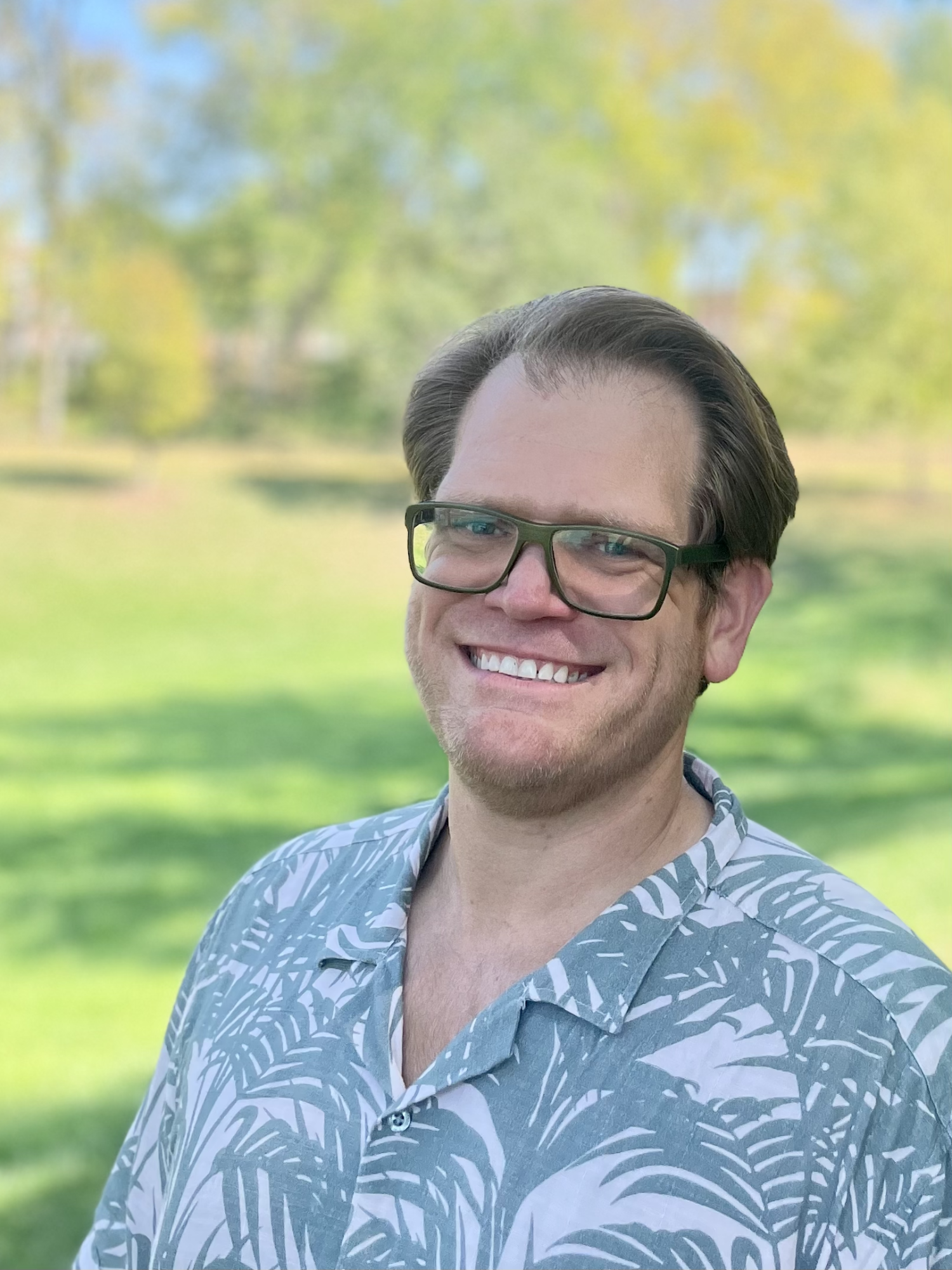
Though this is Mitch Lingo’s first time running for School Board. He is passionate about public education and has done extensive research in the field of high school and post-secondary education.
Have you run for public office before?
No, I haven’t. This is my first time running for any kind of public office.
Why are you qualified to be on the School Board?
There’s multiple reasons, but a lot of it just comes down to having a background in education. You know, it goes back generations. My grandmother was a teacher, and librarian and my grandfather on my mom’s side was superintendent. I taught myself for six years in an area of Omaha that was a very tough area to teach in. When I was in Omaha, I added on to my elementary, middle level middle school degrees with a degree in secondary education. So I have a background from kindergarten through twelfth grade. My research ties in heavily throughout the high school-to-college pipeline and I don’t just pay attention to high school research or college research. I really have a holistic view on education because in my opinion, it starts before the cradle and all the way to the grave.
Why are you running for School Board?
I am a former classroom teacher myself. I taught for six years in Omaha, Nebraska, and I came here for my PhD in Educational Policy Leadership Studies. A lot of my early research focused on school choice and just the way of public education within towns and communities. Ultimately, it wasn’t the way I took my research path but it always kept in the back of my brain and when the vouchers came in, I started paying a lot more attention to the school board because it’s an area that interests me and I’m very, very pro-public education in every way, shape, or form.
I noticed that school choice wasn’t necessarily coming into the conversation, so I thought to myself, well, here’s my chance to run and use my background.
How long have you lived in the district?
I moved here in 2014. My wife moved here when she was five, and oddly enough, I was actually born in Iowa City, but my parents left, so I can kind of say that between my wife and myself, we are one full person [from Iowa City].
What are your positions on the bills regarding education being passed in the Iowa Legislature?
I honestly disagree with them. But at the same time, we have to follow the laws. We have to figure out ways to navigate them that can support our LGBTQ and BIPOC students while still finding a way to follow the law.
What is the biggest issue with public education today?
Nationwide, a part of it is the recovery from COVID. What I mean by that is just academically, the country is at kind of a standstill. We [have] test scores and they’re only one parameter, but they dropped tremendously. The after-effects have resulted in massive amounts of students not attending school. It’s really just trying to wrap around the collective trauma that we all experienced in this country if that makes any sense, and just how we recover from that. Probably the other one is just getting enough funding. You always hear people that you know, that are like, ‘Well, schools just need to get lean,’ but you know, there’s some issues in there. We need great teachers and students going into education, but the only way to be able to do that is to pay a competitive wage. And the only way to pay a competitive wage is better appropriations.
How are you prepared to address student achievement gaps?
Just one of the big things that I think we need to continue looking at is how we distribute our Weighted Resource Allocation Model (WRAM). The elementary schools with higher free and reduced-price lunch rates end up with smaller class sizes because those school buildings get greater resources. So, continuing with the way that we have done our attendance zones throughout the district to try to distribute students that are on or not on free or reduced lunch across the buildings are two main big components to continue to use even if people start getting frustrated with it.
I had students in my classroom that still could not multiply. So it became very difficult because those students didn’t get what they needed at the younger grade levels to be able to succeed at the higher grade levels. To do this, we need to focus on getting students up to speed at early grades.
How important are fine arts programs to students’ education?
Funny enough, one of the areas that I wrote on and as a researcher and published on is arts. Arts are incredibly important. And it is just as important as athletics to high school students to find themselves and grow as humans. Within high schools, it’s almost like a triangle with arts. I’ll start with academics at the top and then at the other two corners of the bass are art and athletics. Because just having those options to have students be able to build friendship networks, meet adults, and, you know, grow as humans and to make that next step behind the college is very important.
Can you talk about how the district is reviewing the math curriculum? What’s your position on that?
[I listened to] the committee that was discussing that a few weeks ago and one of the things that kind of came out of that to me is that we have a lot of math rock stars in eighth grade. I kind of wonder if there is a need for other curriculum options besides Algebra One in eighth grade if we have 34% of our students accelerated, and 34% of them are excelling.
Really, when we stop and think about it if Iowa City Community Schools is not going to offer a robust choice of math curriculum to parents, other schools will come along, or even a potential stem charter school, [that do offer other math options]. When it comes down to looking at changing coursework in the eighth grade, which I’ve had parents approach me and ask me about, [we need to have] at the very least the Algebra One option, and I was starting to look at more options for Geometry.
Your donation will support the student journalists of Iowa City High School. For 2023, we are trying to update our video and photo studio, purchase new cameras and attend journalism conferences.


